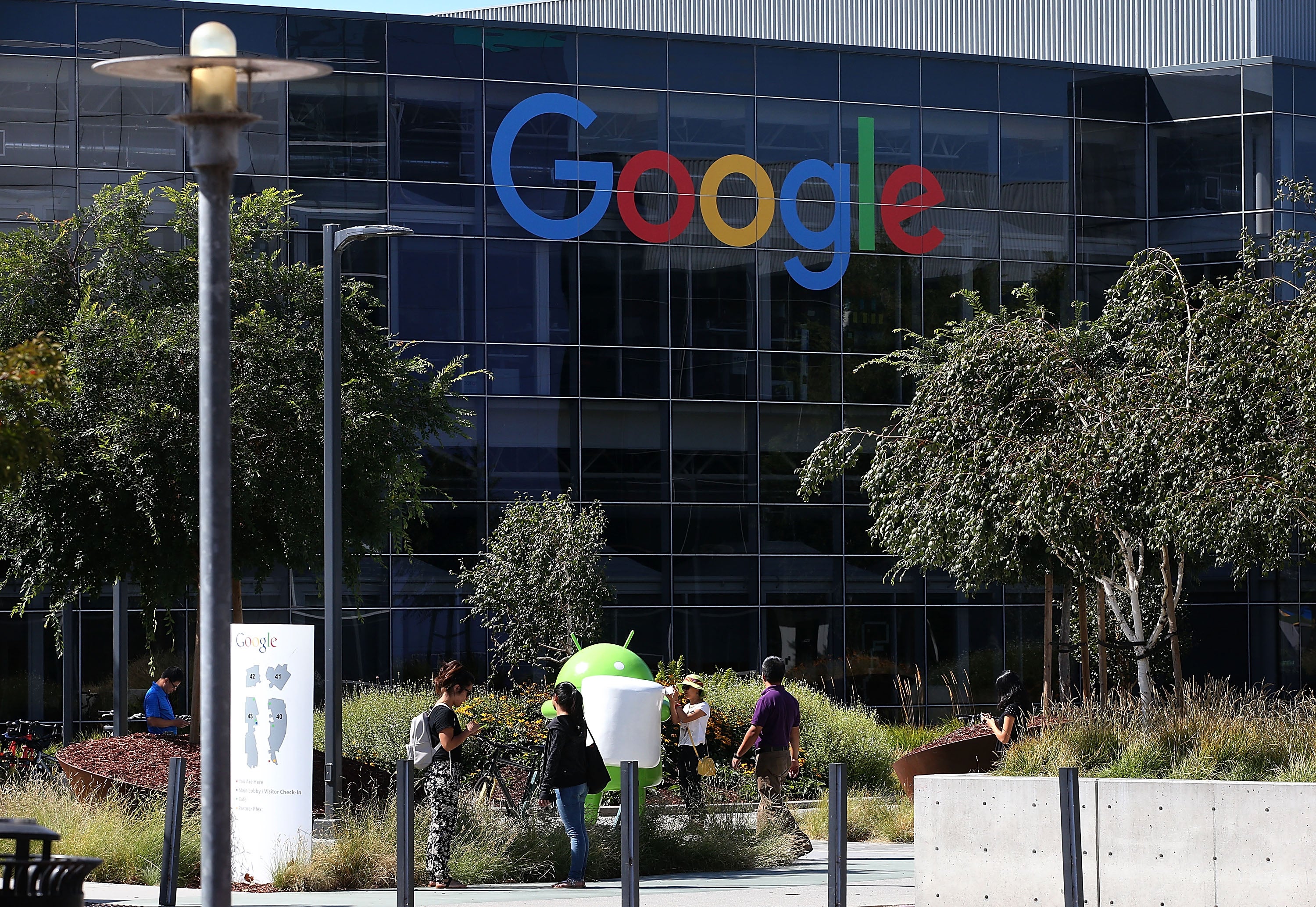Google profited from climate deniers despite promising to pull ads, report claims
‘Google’s motto used to be “do no evil”; it appears though, there was a caveat: unless it makes Google a buck or two’, an executive from the CCDH said

Your support helps us to tell the story
From reproductive rights to climate change to Big Tech, The Independent is on the ground when the story is developing. Whether it's investigating the financials of Elon Musk's pro-Trump PAC or producing our latest documentary, 'The A Word', which shines a light on the American women fighting for reproductive rights, we know how important it is to parse out the facts from the messaging.
At such a critical moment in US history, we need reporters on the ground. Your donation allows us to keep sending journalists to speak to both sides of the story.
The Independent is trusted by Americans across the entire political spectrum. And unlike many other quality news outlets, we choose not to lock Americans out of our reporting and analysis with paywalls. We believe quality journalism should be available to everyone, paid for by those who can afford it.
Your support makes all the difference.Google has been placing ads next to content promoting climate change denial despite promising not to, a new report alleges.
The Centre for Countering Digital Hate claims that Google would “prohibit ads for, and monetization of, content that contradicts well-established scientific consensus around the existence and causes of climate change” from 9 November.
However, the CCDH claims that on that date, 95 out of 100 articles that contained climate misinformation – such as claiming that it is a hoax, that the science is “alarmism”, or that there is a “cult” around it – had ads running next to them.
The CCDH identified ten fringe publishers “whose content features in posts accounting for up to 69 per cent of Facebook interactions with climate denial content”. They claim that, in just six months, these publishers had generated up to $5.3 million in Google Ads revenue.
“Climate change denial is a cynical strategy that seeks to delay the action needed to prevent ecological disaster”, Imran Ahmed, Chief Executive of the Center for Countering Digital Hate, said.
“In making their initial announcement, Google appears to recognise that they have played a part in making climate change denial a profitable business, and yet they have not followed through with real action.
“Google’s motto used to be ‘do no evil’; it appears though, there was a caveat: unless it makes Google a buck or two.”
The publishers the CCDH mention include Breitbart, which called global warming "a gigantic eco-fascist gaslighting operation”, an Electroverse article that claimed “there are no credible scientists warning of a ‘climate emergency’ — not a single one”, and a Western Journal article claiming “Whether the climate is changing — and whether it is caused by man — are questions not answered definitively."
In 2019, eleven thousand scientists in 153 countries declared a climate emergency and warned that “untold human suffering” is unavoidable without huge shifts in the way we live.
“It appears Google is spreading disinformation about its efforts to fight disinformation. Why is Google continuing to let climate denial be profitable after promising in October they would put an end to it?”, Michael Khoo, co-chair of the climate change disinformation coalition at Friends of the Earth, said in a statement.
“It’s bad enough Google hosts so much climate denial on YouTube, but it’s even worse if they’re lying about their reforms. Google must do much more to stop the spread of climate denial.”
In a statement to The Independent, Google said: “We recently launched a new industry-leading policy that explicitly prohibits ads from appearing next to false claims about the existence and causes of climate change. When we find content that crosses the line from policy debate to promoting climate change denial, we stop serving ads on that page or site. We’ve reviewed the pages shared with us and have taken appropriate enforcement actions.”
Join our commenting forum
Join thought-provoking conversations, follow other Independent readers and see their replies
Comments